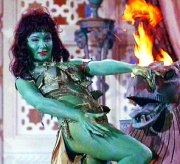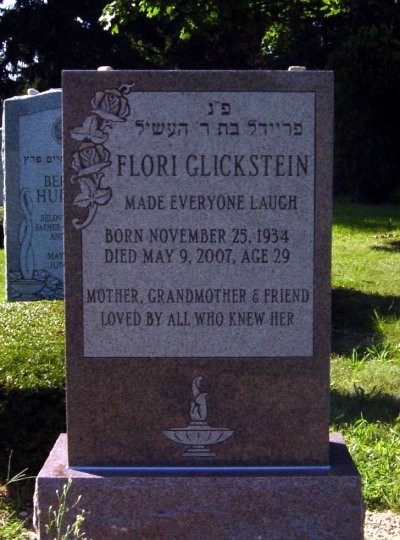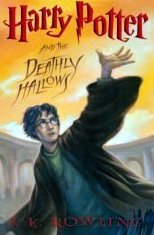Author: bobg
Just the way it was, brick for brick
In the flashback scenes of that film, the eight-year-old Bruce Wayne lives in a Gotham City full of hope and promise — hope and promise provided in very large part by his father, entrepreneur and philanthropist Dr. Thomas Wayne. Thomas Wayne runs Wayne Enterprises, a major contributor to the civic health of Gotham. Thomas Wayne built Gotham’s egalitarian transit system. And in their mansion on the edge of town, Thomas is a model father to his son Bruce, teaching him about humility, compassion, and justice; letting Bruce play with his stethoscope.
By the climax of the film, none of it remains. Wayne Enterprises is greedy and corrupt and complicit in the very scheme that seeks to destroy Gotham City. Bruce (as Batman) is obliged to demolish the elevated trains himself. Wayne Manor is a smoking pile of rubble, the stethoscope lying in the middle of it, blackened and melted. And Thomas Wayne himself is of course long gone, a victim of the very underclass he sought to embrace.
So too with America. As Elliot Cohen, author of The Last Days of Democracy, explains in a recent interview:
[We] have the operations and secret prison camps in Europe, we torture prisoners in Abu Ghraib and Gitmo […] the NSA spying programs warrantlessly. Bush is issuing signing statements, which is tantamount to nullifying congressional lawmaking powers. Cancellation of habeas corpus, [defining] individuals as enemy combatants just by virtue of whether the President deems [them] hostile to U.S. interests. I mean this goes on and on for individual facts as to why one might say that America is becoming a dictatorship.
(And he does in fact go on and on in that interview, and presumably much more so in his book.)
What remains of American prosperity and might and justice? The Treasury — empty. The military — exhausted. Elections — rigged. The Constitution — toothless. Our beautiful nation, the gift of our fathers to us, gone, a victim of the greedy and the ignorant we had gregariously supposed to embrace in our political discourse.
Now, some might say that Batman, unique among superheroes, has no superpowers, but they’d be wrong: he has bottomless wealth and a will of iron. What does America have? Well, bottomless wealth for one thing. Yes, we’re in terrible fiscal shape, but we’re still brimming with the real sources of wealth: land, labor, ingenuity. We also have a will of iron. Yes, apathy and despair have gotten us to where we are today, but we had apathy and despair in the 1930’s and we still rose to the challenge of a global war.

Bruce loses everything —
except what can’t be destroyed
While formulating his thoughts about retaking Gotham City from the criminal class that controls it, Bruce Wayne explains to Alfred, “As a man I’m flesh and blood. I can be ignored. I can be destroyed. But as a symbol — as a symbol I can be incorruptible, I can be everlasting.” Everything that was built by Thomas Wayne is destroyed — everything tangible. But not his everlasting ideals, embodied by the son he taught them to.
We have Batman’s powers. We have our ideals. We can be Batman to our ravaged Gotham.
As Bruce surveys the ruin of Wayne Manor he declares to Alfred his intention to rebuild it, “just the way it was, brick for brick.” So too his intention to employ his wealth and his iron will to restore hope and promise to Gotham City.
So too with America.
Made everyone laugh
 Among the very earliest artifacts available for Star Trek fans to own was the book, The Making of Star Trek, by Stephen E. Whitfield and Gene Roddenberry, and I read it in the 70’s.
Among the very earliest artifacts available for Star Trek fans to own was the book, The Making of Star Trek, by Stephen E. Whitfield and Gene Roddenberry, and I read it in the 70’s.
 One anecdote that I remember from that book had to do with production of the original pilot episode, “The Cage.” In one scene, the actress Susan Oliver dances as a seductive “Orion slave girl,” covered from head to foot in green body makeup. The optical lab that processed the film footage from those scenes believed they had screwed up — and they color-corrected Oliver back to her normal skin tone! As I recall the story, this happened two or three times before the studio finally sent explicit instructions to the lab and they got it right.
One anecdote that I remember from that book had to do with production of the original pilot episode, “The Cage.” In one scene, the actress Susan Oliver dances as a seductive “Orion slave girl,” covered from head to foot in green body makeup. The optical lab that processed the film footage from those scenes believed they had screwed up — and they color-corrected Oliver back to her normal skin tone! As I recall the story, this happened two or three times before the studio finally sent explicit instructions to the lab and they got it right.
I thought of this story when I learned from my dad a few weeks ago that someone made an unwanted “correction” to my mom’s cemetery headstone (on the proof that he saw). As long as I knew her, my mom jokingly maintained at each birthday that she was turning 29 (a source of extra hilarity when I “passed” her in age). So we put it in her epitaph, since with my mom, humor was paramount. But someone saw fit to change it to 73, which is correct only in a narrow-minded arithmetical sense — pah.
Fortunately we were able to correct it before production of the real headstone, which is newly erected.

Considerate inventor
I agree with much of what it says about me (“problem-solving is a specialty of yours, owing to your persistence, curiosity, and understanding of how things work”; “you value your close relationships very much, and are more likely to spend time in small, tightly-knit groups of friends than in large crowds”; “you like to look at all sides of a situation before making a judgment, particularly when that situation involves important things in other people’s lives”; etc.), but that’s not the true test of how good a personality quiz is. It’s easy to describe vague complimentary personality traits that almost anyone can agree with — just look in any newspaper’s horoscope column. To find out if it’s really individualized, you have to look at the answers that other people get and ensure they don’t apply to you.
I did a Google-Blog search for “personaldna” and found several other people’s results. Unfortunately, there was little in their results that I disagreed with for myself; so by my criterion, PersonalDNA is not a very good personality test.
The Myers-Briggs test, on the other hand, passes the other-people’s-results-don’t-apply-to-me test. I took an online version several years ago and it too pigeonholed me as an “inventor” (type ENTP). Others around me who took the test got results that didn’t apply to me at all. So impressed was I with its accuracy that I predicted the result for my friend Steve, sealed it in an envelope, gave him the envelope and bade him take the test. Though he was scornful of most tests of this kind, he was convinced about Myers-Briggs when his result agreed exactly with my prediction.
Jim Taylor
John Edwards has been getting vocal lately about Rupert Murdoch and his News Corp. empire (which includes Fox News), urging Congressional Democrats to block its acquisition of Dow Jones and the Wall Street Journal, and chiding the other Democratic presidential hopefuls for accepting News Corp. donations.
Today the New York Post (a Murdoch newspaper) wrote,
John Edwards, who yesterday demanded Democratic candidates return any campaign donations from Rupert Murdoch and News Corp., himself earned at least $800,000 for a book published by one of the media mogul’s companies.
(It’s under the headline, “Edwards in a biz hate & $witch” for extra we-report-you-decide journalistic impartiality.)
The Post would have its readers equate cash donated by News Corp. in support of a political campaign with cash earned in a retail venture.
The screed continues,
The campaign didn’t respond to a question from The Post about whether it was hypocritical for Edwards to take money from News Corp. while calling for other candidates not to.
I’ll respond: Edwards took money from the purchasers of his book, not from News Corp. Hillary Clinton, on the other hand, did take News Corp. money. (Disclaimer: I endorse John Edwards for president, but I am not endorsed by him or his campaign and do not speak for them.)
Let’s say this distinction is lost on you. What would be an honorable thing for Edwards to do with the disputed cash? Give it to charity?
Edwards claimed $333,334 in royalties from last year’s release of the book, according to media accounts. The campaign said last night that those funds were part of the advance.
He says he gave that amount to charity, which would also provide tax benefits for Edwards.
The cynical Post can make even the honorable thing have the taint of hypocrisy. A ham-handed attack like this belongs in a Hollywood movie from the ’40s, not in real life. But I guess we should expect no less from News Corp. journalists, the remains of whose souls are at this very moment dribbling down the chin of a cackling and engorged Rupert Murdoch.
Don’t stop believin’
Last September I wrote:
I routinely exchange pleasantries with a checkout clerk named Lora at my local supermarket. We ask after each other’s families, she watches my kids grow up, etc. On one visit she mentions that she used to be a flight attendant — furloughed after 9/11, natch — and hopes to be one again.
Her only hopes for getting a decent flight-attendant job based in the Bay Area were with United, which wasn’t hiring, and Virgin America, which wasn’t even flying, though they’re now just days away from beginning regular operations. Having not seen her at the supermarket for many weeks, I asked after her — and learned she landed the Virgin America job. Way to go, Lora! Good luck and clear skies.
Weight insurgency in its last throes
One month ago I wrote:
I can confidently report for those considering a failed attempt to lose weight that there is nothing better for that than combining the aftermath of your mom’s death with caring for two small children and one extremely elderly dog, plus a long daily commute and a consulting gig on the side.
To that list I can now add “breaking a rib” and “putting said elderly dog to sleep.”
(Did I really say 2007 was going to be a good year? Maybe only in the sense of, “What doesn’t kill me makes me stronger.” Or maybe the continued amazingness of our kids is bleeding the karma out of everything around them, which I’m willing to endure indefinitely.)
So I am again moving the goalpost: the target of 150 pounds is now scheduled for the first of July, 2008.
Putty in her hands
 That didn’t take long: I finished all 759 pages of Harry Potter and the Deathly Hallows in barely five days.
That didn’t take long: I finished all 759 pages of Harry Potter and the Deathly Hallows in barely five days.
It’s no spoiler to say that the book deals with some pretty heavy themes, as indeed the climax of a seven-part epic must. The action must rise and the emotional stakes must become almost too much to bear. The author, J.K. Rowling, does not disappoint. There is loss and sorrow and despair and other things too, both good and bad, and Rowling played me like a fiddle. All this week, my mood was good when Harry Potter was safe or happy, but miserable the majority of the time as the themes in the story had me dwelling on Alex, my mom, and various other well-loved things in my life that are ending, such as our sons’ attendance at the wonderfully offbeat preschool Little Arrows. Even finishing the audiobook of Moby-Dick, which I wasn’t particularly enjoying other than as an intellectual appreciation for its place in the annals of literature, was made more poignant by the feelings Rowling was making me have.
It is a further testament to Rowling’s mysteriously begotten powers that finally reaching the end of Harry’s story after spending most of a decade with him did not also fill me with a feeling of loss, but of fulfillment.
Now, back to my RSS feeds…
Tuile-rula-rula
After finishing the free audiobook of Huck Finn recently (which was outstanding — better, I daresay, than trying to read Mark Twain’s written renditions of all those Southern dialects myself), I started on the Librivox audiobook of Moby-Dick. It’s no less dense than the first time I attempted it, but the reader, Stewart Wills, does a yeoman’s job of predigesting for me its turgid penetralia.
Here’s the weird part: as I’ve remarked previously, both Huck Finn and Slaughterhouse-Five, which I was reading contemporaneously, mention a French place name I’d never heard before: Tuileries. Today I heard it again in Moby-Dick! (Chapter 104, to be precise.) What are the odds?
Here’s another interesting connection: both Moby-Dick and Slaughterhouse-Five are hyphenated titles, and they both have subtitles (“The Whale” and “The Children’s Crusade,” respectively).
Well, it’s a little interesting.
Over the wall
Just in time to concentrate my pop culture obsession on the new Harry Potter book, which arrives from Amazon tomorrow — er, later today — a few minutes ago I finished watching season one of Prison Break on DVD. It was outstanding. It’s the story of Michael Scofield, a respectable white-collar professional who gets himself thrown into the same prison where his ne’er-do-well brother is on death row. Scofield has come prepared with an intricate plan to help them both escape and save his brother’s life.
A few interesting things about this show:
- Scofield’s prisoner number, 94941, was my ZIP code for 10 years.
 Scofield holds up a bank in order to get arrested and imprisoned. Although this scene is set in Chicago, the exterior shot of the bank he robs is of the distinctive-looking Ridgewood Savings Bank in Forest Hills, New York, where I had a passbook account in elementary school.
Scofield holds up a bank in order to get arrested and imprisoned. Although this scene is set in Chicago, the exterior shot of the bank he robs is of the distinctive-looking Ridgewood Savings Bank in Forest Hills, New York, where I had a passbook account in elementary school.- This was the final viewing recommendation made to me by my mom after a lifetime full of them. When she first started watching it, beginning with the pilot episode, it was mainly for the hunky Wentworth Miller, who plays Scofield. I thought the premise, which she described to me, was too far-fetched, but as the season unfolded she continued to rave about it and finally piqued my interest. She was right, and as I neared the climax of season one, the discs couldn’t come from Netflix fast enough.